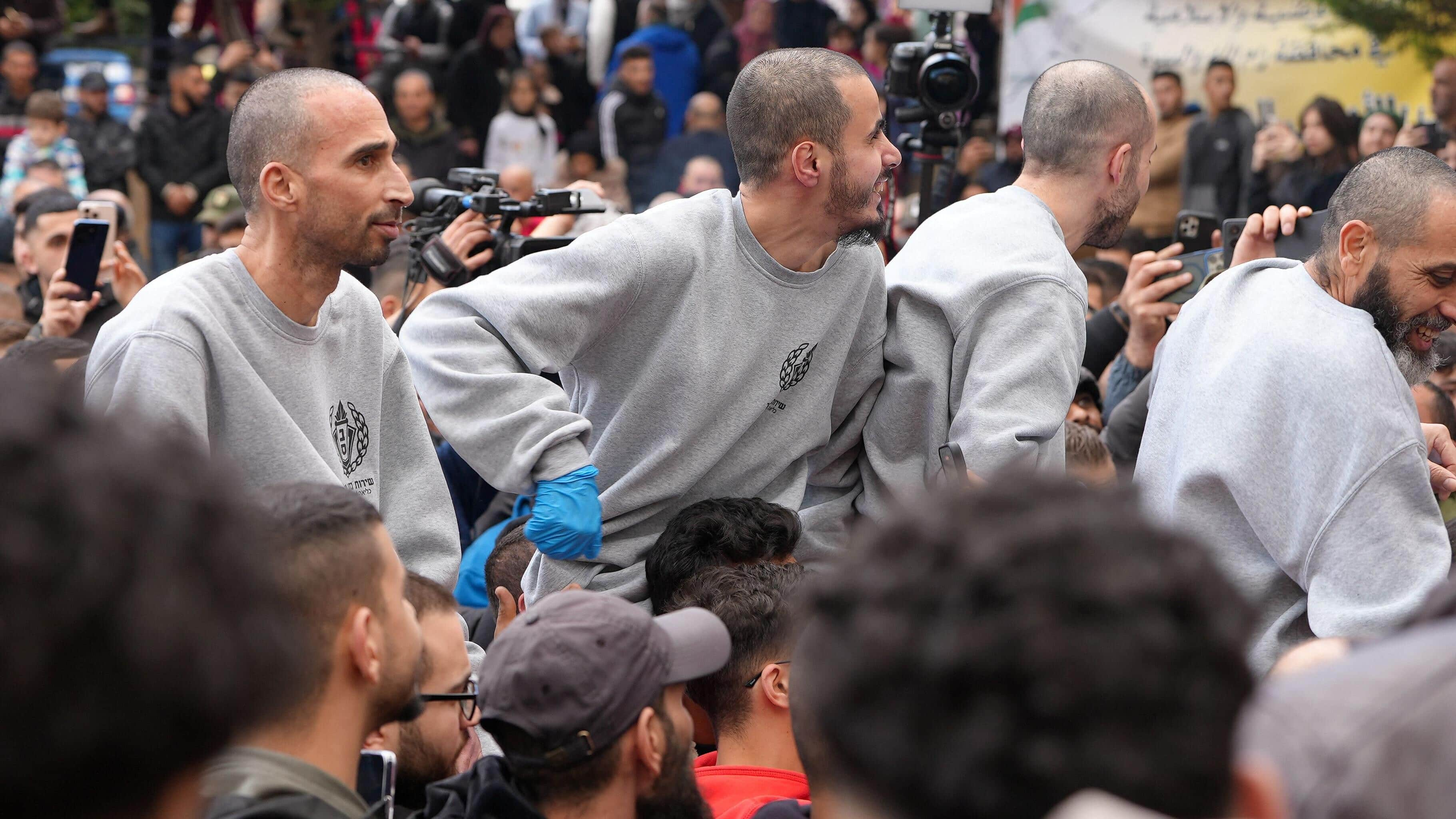
Israel begins releasing hundreds of Palestinians after Hamas hostage swap
What's the story
As part of a ceasefire deal, Israeli forces have begun releasing hundreds of Palestinian prisoners.
The move comes after Hamas freed three Israeli hostages—Iair Horn, Sagui Dekel Chen, and Alexander Troufanov.
The hostages were seen in public in southern Gaza before their release.
This is the sixth exchange since the ceasefire started on January 19.
Emotional reunion
Hostages' return sparks relief and concern
The freed hostages were welcomed by jubilant crowds at the Red Cross in Tel Aviv.
Horn's family was relieved at his return but remains anxious for his brother Eitan, who is still held captive.
Chen was abducted while working outside during an attack; his wife and daughters hid in a safe room, and his third daughter was born during his captivity.
Troufanov was taken along with his family members, who were released earlier.
Prisoner release
Hamas announces release of 369 Palestinian prisoners
Hamas's Prisoner Information Office has announced that 369 Palestinians will be freed from Israeli prisons.
Among them is Ahmed Barghouti, a prominent political figure serving a life sentence for orchestrating attacks during the Second Intifada.
However, concerns persist for the remaining 251 abductees, with 73 still in Gaza and half believed dead.
Many remaining hostages are Israeli soldiers.
Harrowing experience
Former hostage describes ordeal, credits Trump for survival
Former hostage Keith Siegel recounted his ordeal: "I was held for 484 days in unimaginable conditions." He credited President Donald Trump for his survival and urged further action to free the remaining captives.
The ceasefire remains precarious as Hamas threatened to delay further releases over unmet aid commitments by Israel.
The truce could collapse if future negotiations falter.
Devastating impact
Conflict's toll on Gaza and ceasefire's uncertain future
The ongoing conflict has left Gaza in ruins, uprooting most of its residents.
More than 48,000 Palestinians, mostly women and children, have reportedly died, while Israel claims to have killed over 17,000 militants.
Trump's plan to relocate Palestinians has further complicated the ceasefire's fate.
Although backed by Israel's government, it is opposed by Palestinian groups and human rights organizations.